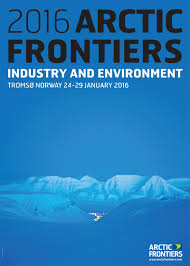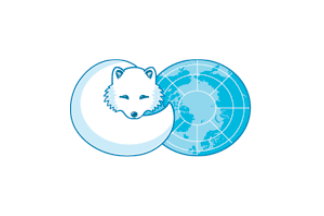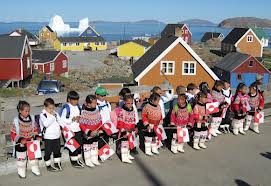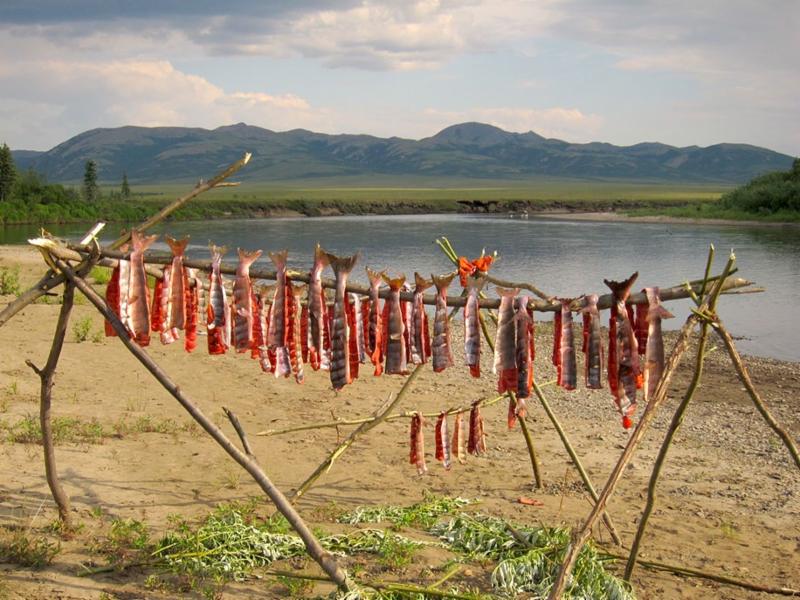|
|
|
|
|
|
|
|
 2016 Arctic Frontiers, January 24-29, 2015 (Tromso, Norway). 2016 Arctic Frontiers, January 24-29, 2015 (Tromso, Norway).The Arctic is a global crossroad between commercial and environmental interests. The region holds substantial natural resources and many actors are investigating ways to utilise these for economic gain. Others view the Arctic as a particularly pristine and vulnerable environment and highlight the need to limit industrial development. Arctic Frontiers 2016 will discuss the balance between resource utilisation and preservation, and between industrial and environmental interests in the Arctic. Envisioning a well-planned, well-governed, and sustainable development in the Arctic, how can improved Arctic stewardship help balance environmental concerns with industrial expansion? How can the industrial footprints from future business activities be minimised? And last, but not least, what role will existing and emerging technologies play in making industrial development profitable and environmentally friendly, securing a sustainable growth scenario for Arctic communities?
Today's Congressional Action:
The House is in session. The Senate is expected to begin consideration of S. 2012, the Energy Policy Modernization Act.
|
 [Opinion] Arctic Council Coming to Town: International Policy Group Chooses Fairbanks for 2017 Meeting. Already known for its role leading U.S. Arctic research, Fairbanks is set to be a key location in the conclusion of the U.S. term at the head of the Arctic Council. The Arctic Council isn't a body particularly well known to the average Alaskan, its importance is significant and growing as the eyes of the world turn northward due to economic opportunities and the effects of climate change. Next year, the Interior will play host to the group as it makes decisions pivotal to the future of Alaska and the entire circumpolar Arctic region. The Arctic Council is an intergovernmental forum that nations with Arctic assets and territory use to meet and coordinate on Arctic policy. Members of the council include the U.S., Canada, Finland, Iceland, Norway, Russia, Sweden and Denmark. Fairbanks Daily News-Miner [Opinion] Arctic Council Coming to Town: International Policy Group Chooses Fairbanks for 2017 Meeting. Already known for its role leading U.S. Arctic research, Fairbanks is set to be a key location in the conclusion of the U.S. term at the head of the Arctic Council. The Arctic Council isn't a body particularly well known to the average Alaskan, its importance is significant and growing as the eyes of the world turn northward due to economic opportunities and the effects of climate change. Next year, the Interior will play host to the group as it makes decisions pivotal to the future of Alaska and the entire circumpolar Arctic region. The Arctic Council is an intergovernmental forum that nations with Arctic assets and territory use to meet and coordinate on Arctic policy. Members of the council include the U.S., Canada, Finland, Iceland, Norway, Russia, Sweden and Denmark. Fairbanks Daily News-Miner
US Government Strengthens Arctic Policies. The U.S. Government's Arctic activities for 2016 include intensified shipping safety precautions, in both the Aleutians and Bering Sea. The Aleutians and Bering Sea Islands Conservation Cooperative provided an analysis of the region. Your Alaska Link spoke to The Aleutians and Bering Sea Islands Conservation Cooperative biologist and coordinator Douglas Burn, who facilitated the Cooperative's analysis. Burn described, "One of the biggest dangers that we are all concerned about are vessels that run aground and they spill oil, whether it's oil that they are using as fuel or in the case of a tanker, oil they may be transporting." Your Alaska Link
 [Speech] Greenland: Balancing the Need for Development and Environmental Protection. While climate change poses a serious challenge to our way of life, it is also resulting in increased accessibility to our natural resources bringing about new opportunities for development in the Arctic. My Government is fully aware of the necessity to balance resource utilization and environmental protection. The principle of sustainability - in particular environmental sustainability - has always been an integral part of Greenlandic culture and identity. Arctic Journal [Speech] Greenland: Balancing the Need for Development and Environmental Protection. While climate change poses a serious challenge to our way of life, it is also resulting in increased accessibility to our natural resources bringing about new opportunities for development in the Arctic. My Government is fully aware of the necessity to balance resource utilization and environmental protection. The principle of sustainability - in particular environmental sustainability - has always been an integral part of Greenlandic culture and identity. Arctic Journal
 Arctic Report: How to Feed Salmon to the World. One in five people today depend on fish as their primary source of protein, according to the United Nations. And as the world's population grows, and the quality of diets improves for many of those people (a.k.a. getting access to protein), so does this demand. The demand for salmon, for example, has been increasing an average of 13 percent a year, according to the Norwegian Seafood Council. Fish populations in the world's oceans, in contrast, are crashing and burning. More than 70 percent of the world's fish species are fully exploited or depleted, according to the Food and Agriculture Organization. Popular Science Arctic Report: How to Feed Salmon to the World. One in five people today depend on fish as their primary source of protein, according to the United Nations. And as the world's population grows, and the quality of diets improves for many of those people (a.k.a. getting access to protein), so does this demand. The demand for salmon, for example, has been increasing an average of 13 percent a year, according to the Norwegian Seafood Council. Fish populations in the world's oceans, in contrast, are crashing and burning. More than 70 percent of the world's fish species are fully exploited or depleted, according to the Food and Agriculture Organization. Popular Science
US Strategy for Arctic Includes Alaska's Aleutians and Bering Sea. The rain-drenched Aleutian Islands, which curve from Alaska's mainland to Asia, lie about 800 to 1,000 miles south of the Arctic Circle. So why do the U.S. government's Arctic plans include enhanced shipping safety in the Aleutians and the similarly subarctic Bering Sea? There is a legal explanation. The 1,200-mile Aleutian chain, the Bering and other subarctic areas are considered part of the Arctic for the purposes of federal policy. Alaska Dispatch News
|
Legislative Action
No Arctic legislation was formally considered yesterday.
|
|
Future Events
Alaska Forum on the Environment, February 8-12, 2016 (Anchorage, Alaska, USA). The Alaska Forum on the Environment (AFE) is Alaska's largest statewide gathering of environmental professionals from government agencies, non-profit and for-profit businesses, community leaders, Alaskan youth, conservationists, biologists and community elders. The diversity of attendees and comprehensive agenda sets this conference apart from any other. Each year there are over 80 technical breakout sessions and sensational Keynote Events. There will be a full week of sessions on climate change, energy, environmental regulations, cleanup and remediation, fish & wildlife, solid waste, and more.
** New this week** ARCUS DC Arctic Research Seminar Series, February 18, 2016 (Washington, DC). Does it seem as though the weather gods have gone crazy lately? It is not your imagination. The question on everyone's minds is why? And is it related to climate change? In this presentation, I will explain new research that links increasing extreme weather events with the rapidly warming and melting Arctic during recent decades. Evidence suggests that Arctic warming is causing weather patterns to become more persistent, which can lead to extremes such as droughts, cold spells, heat waves, and some flooding events.
5th Annual Fletcher Opening Arctic Conference, March 12, 2016. The Opening Arctic Conference builds on the Fletcher School's Warming Arctic International Inquiry series, to bring together high-level thought leaders from across disciplines, Fletcher's hallmark. Staged annually, Fletcher's event continues to address the foreign policy, economic, environmental and security implications of the opening Arctic, while dispelling myths.
Alaska Rural Energy Conference, April 26-28, 2016 (Fairbanks, Alaska, USA). The Alaska Rural Energy Conference is a three day event offering a large variety of technical sessions covering new and ongoing energy projects in Alaska, as well as new technologies and needs for Alaska's remote communities. Building on the growing success, the Alaska Energy Authority and the Alaska Center for Energy and Power have joined forces again to organize and sponsor the 10th annual Alaska Rural Energy Conference.
14th IATS Seminar, June 19-25, 2016 (Bergen, Norway). The University of Bergen (UiB) is honored to host the 14th IATS Seminar in Bergen, Norway, from Sunday 19 to Saturday 25 June 2016 in co-operation with the Network for University Co-operation Tibet-Norway, an academic network with the universities of Oslo, Bergen and Tromsų as partners. The convenor is Professor Hanna Havnevik, Department of Culture Studies and Oriental Languages, University of Oslo, and Chair of the Network.
Inuit traditions are a repository of Inuit culture and a primary expression of Inuit identity. The theme for the 2016 Inuit Studies Conference invites Elders, knowledge-bearers, researchers, artists, policy-makers, students and others to engage in conversations about the many ways in which traditions shape understanding, while registering social and cultural change. The institutional hosts of "Inuit Traditions," Memorial University of Newfoundland and the Nunatsiavut Government, invite you to contribute to an exchange of knowledge to be held in St. John's, Newfoundland and Labrador, October 7-10, 2016. Presentations on all aspects of Inuit studies will be welcome.
|
|

  
4350 N. Fairfax Drive, Suite 510
Arlington, VA 22203, USA
External links in this publication, and on the USARC's World Wide Web site ( www.arctic.gov) do not constitute endorsement by the US Arctic Research Commission of external Web sites or the information, products or services contained therein. For other than authorized activities, the USARC does not exercise any editorial control over the information you may find at these locations. These links are provided consistent with the stated purpose of this newsletter and the USARC Web site.
|
|
|
|
|
|
|
|
|